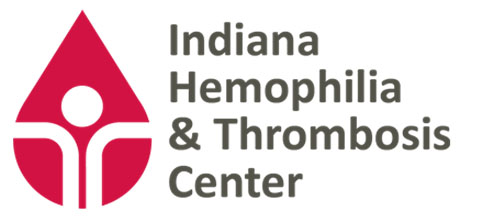Important Note
You will need to login first in order to enroll or view an activity. Login Here
To view the details of online learning activities, click "Read More". To complete the activity, first "Login" and then click "Enroll". If you are already enrolled click "View" to access the activity. All activties expire at 5:00 PM (EST) on the displayed expiration date.
*Note: ✔ = Contact Hours Provided AND ✖ = No Contact Hours Provided
FEATURED MODULE
Plasminogen Deficiency: An Ultra-rare, Multi-system Disease (for HTC staff)
- Credits: 1.0 (ACCME), 1.0 (ANCC)
- Expiration Date: September 25, 2025
Trending, HTC Community Only[✔]
FEATURED MODULE
Plasminogen Deficiency: An Ultra-rare, Multi-system Disease
- Credits: 1.0 (ACCME), 1.0 (ADA credit pending Sept. 2025)
- Expiration Date: September 25, 2025
Trending, Public[✔]
A School Nurse's Guide to Bleeding Disorders: Hemophilia
- Credits: 0.75 (ANCC)
- Expiration Date: June 8, 2026
HTC Community Only[✔], Public[✔]
A School Nurse's Guide to Bleeding Disorders: von Willebrand Disease
- Credits: 0.5 (ANCC)
- Expiration Date: December 29, 2025
HTC Community Only[✔], Public[✔]
An Overview of the Background, Inheritance and Pathophysiology of von Willebrand Disease
- Credits: NA
- Expiration Date: NA
Trending, HTC Community Only[✖], Public[✖]
Trending, HTC Community Only[✖], Public[✖]
HTC Community Only[✖], Public[✖]
HTC Community Only[✖], Public[✖]
Trending, HTC Community Only[✖], Public[✖]
Hereditary Hemorrhagic Telangiectasia: Right Under Your Nose
- Credits: 0.5 (ACCME), 0.5 (ANCC)
- Expiration Date: June 26, 2026
HTC Community Only[✔], Public[✔]
Trending, HTC Community Only[✖], Public[✖]
Physical Therapy and Comprehensive Care
- Credits: 0.75 (ANCC),0.75 (IPCE),0.075 (CPTA)
- Expiration Date: December 1, 2025
HTC Community Only[✔], Public[✔]
Physical Therapy in the Care of Persons with Bleeding Disorders
- Credits: 1.5 (ANCC),1.5 (IPCE),0.15 (CPTA)
- Expiration Date: December 1, 2025
HTC Community Only[✔], Public[✔]
Psychosocial Concerns and Coping Strategies for Persons and Families Living with an Inhibitor
- Credits: 1.0 (ASWB ACE), 1.0 (ANCC), 1.0 (IPCE)
- Expiration Date: September 15, 2025
HTC Community Only[✔], Public[✔]
Psychosocial Considerations in Bleeding Disorders Care: Aging with Hemophilia
- Credits: 1.25 (ASWB ACE), 1.25 (ANCC), 1.25 (IPCE)
- Expiration Date: August 29, 2025
HTC Community Only[✔], Public[✔]
Trending, HTC Community Only[✖], Public[✖]
Understanding Hemophilia
- Credits: 2.0 (ANCC), 2.00 (ASWB ACE), 0.2 (CPTA)
- Expiration Date: July 15, 2026
Trending, HTC Community Only[✔], Public[✔]
Trending, HTC Community Only[✖]
MASAC Pain Initiative Task Force Pain Management Guidelines for Bleeding Disorders
- Credits: NA
- Expiration Date: NA
Trending, HTC Community Only[✖]
Multidisciplinary Bleeding Disorders Comprehensive Care Team: Roles and Responsibilities
- Credits: 0.75 (ANCC)
- Expiration Date: April 17, 2026
HTC Community Only[✔]
Nutritional Considerations in Common Comorbidities of Hemophilia
- Credits: 0.75 (ANCC)
- Expiration Date: May 22, 2027
HTC Community Only[✔]
The 340B Pharmacy Program and the HTC
- Credits: 0.5 (ACPE), 0.5 (ANCC)
- Expiration Date: January 9, 2026
Trending, HTC Community Only[✔]
Trending, Public[✖]
Trending, Public[✖]




